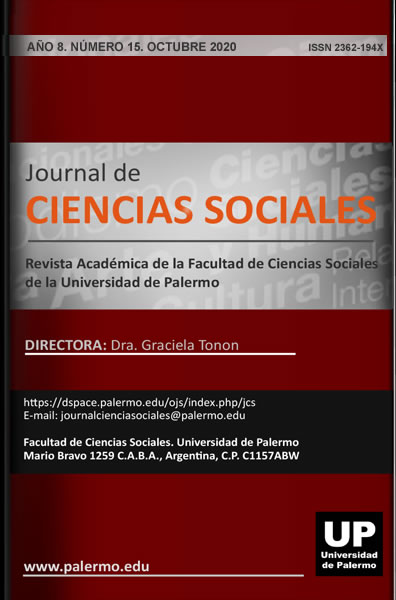Teaching Engineering, for what? An approach from Amartya Sen and Martha Nussbaum´s thought
Abstract
In this essay we intend to reflect on the challenges that the current international context presents to the Engineering education, especially in the Latin American background, where there are great socioeconomic inequalities, technological gaps regarding more sophisticated countries, lack of inclusion and sensitivity towards more extreme problems. Likewise, the global context is challenging due to the exacerbated material competition between powerful countries, environmental problems and climate threats. Democratic States primarily face the development gaps and the problem of inequality. We wonder if, so far, technology has promoted inclusive development or not. Has technology contributed to expand the techno-economic gap between nations and within them? If so, can Engineering, for example, become a profession that minimizes inequalities and support greater access to equitable opportunities? Can it reach an increasingly ubiquitous and capillary way to a wider base of beneficiaries and to equitable access to knowledge? We believe that Engineering has a new role in today's world. To address this paradigm, we rely on the concept of development proposed by the Nobel Prize in Economics, Amartya Sen. We analyze his theory of development based on capabilities, freedom and consequent cooperation, with an impact on new approaches to Education, in particular Engineering Education. We discover a new one purpose for this profession, finding in Sen's thought a new and very noble vocation for it. Finally, we propose an analysis of an educational program in Engineering carried out by the Catholic University of Córdoba from the capabilities approach. It’s aim is to identify, in practice, some novel strategies to implement this new role of Engineering on the base of education for freedom.
Downloads
References
Acemoğlu, D. y Robinson, J. (2012). Why Nations Fail: The Origins of Power, Prosperity, and Poverty. Crown Publishing Group. Edición Kindle.
Nussbaum, M. C. (1992). Human Functioning and Social Justice: In Defence of Aristotelian Essentialism. Political Theory, 20, 202-246.
Nussbaum, M. (2002). Las mujeres y el desarrollo humano. Barcelona: Herder.
Nussbaum, M. C. (2008). Liberty of conscience: In defense of America’s tradition of religious equality. New York: Basic Books.
Nussbaum, M. C. (2009). Education for Profit, Education for Freedom. Liberal Education, 95(3). Recuperado de: https://eric.ed.gov/?id=EJ861161.
O’Donnell, G. (2010). Democracy, Agency, and the State. Theory with comparative intent. Serie Oxford Studies in democratization, Editor Laurence Whitehead. Nueva York: Oxford University Press,
O’Donnell, G. (2011). Modernización y autoritarismo. Buenos Aires: Prometeo Libros.
Prudencio, J. J. B. (2009). Martha Nussbaum, Peter Euben y la educación socrática para la ciudadanía. Revista de educación, 350. Septiembre-diciembre 401-422. Recuperado de: http://www.revistaeducacion.educacion.es/re350/re350_17.pdf. [Consultado por última vez el 13 de octubre de 2019].
Sen, A. (1992) Inequality Reexamined. United States : Oxford University Press.
Sen, A. (2000). Development as freedom. Nueva York: Anchor Books. Versión Kindle.
Sen, A. (2012). La idea de la justicia. Buenos Aires: Taurus.
Urquijo, M. (2014). La teoría de las capacidades en Amartya Sen. Revista EDETANIA, (46), 63-80.
Otros documentos consultados
Asamblea del Consejo Federal de Decanos de Ingeniería de la República Argentina, CONFEDI (2018). Propuesta de estándares de segunda generación para la acreditación de carreras de Ingeniería en la República Argentina. “Libro Rojo De Confedi”.
Colombo, M.; Bosio, M. A.; Vigliano, M.; Chiodi, G. (2019) ACUFTEST, aplicación móvil para pacientes con acúfenos. Paper presentado en Séptimo Congreso Nacional de Ingeniería Informática – Sistemas de Información, DIIT Universidad Nacional de La Matanza - Red IISIC. Disponible en https://conaiisi2019.unlam.edu.ar/pdf/2019-CONAIISI-MEMORIAS-7MA-EDICION.zip.
Castagnola, M. E., Bosio, M. A., & Chiodi, G. A. (2015). Juegos serios aplicados a niños con discapacidades. En II Simposio Argentino sobre Tecnología y Sociedad (STS)-JAIIO 44 (Rosario, 2015). Disponible en: http://44jaiio.sadio.org.ar/sites/default/files/sts36-43.pdf.
Marcucci, M., Aliciardi, A. E., Collino, F., Cunto, G. D., Bosio, M. A., & Chiodi, G. A. (2015). Videojuegos como parte del aprendizaje. En II Simposio Argentino sobre Tecnología y Sociedad (STS)-JAIIO 44 (Rosario, 2015). Disponible en http://44jaiio.sadio.org.ar/sites/default/files/sts36-43.pdf.U
niversidad Católica de Córdoba, UCC (2016). Trabajo Final de Grado. Reglamentación y Documentación. Anexo de Resolución de Decanato.
The authors retain the rights to their work guaranteeing this journal the right of first publication, committing to cite the Journal of Social Sciences as a reference of the original publication.
The works published in the Journal are published under the terms indicated in the Creative Commons License with the International Attribution 4.0 (CC BY 4.0).




























